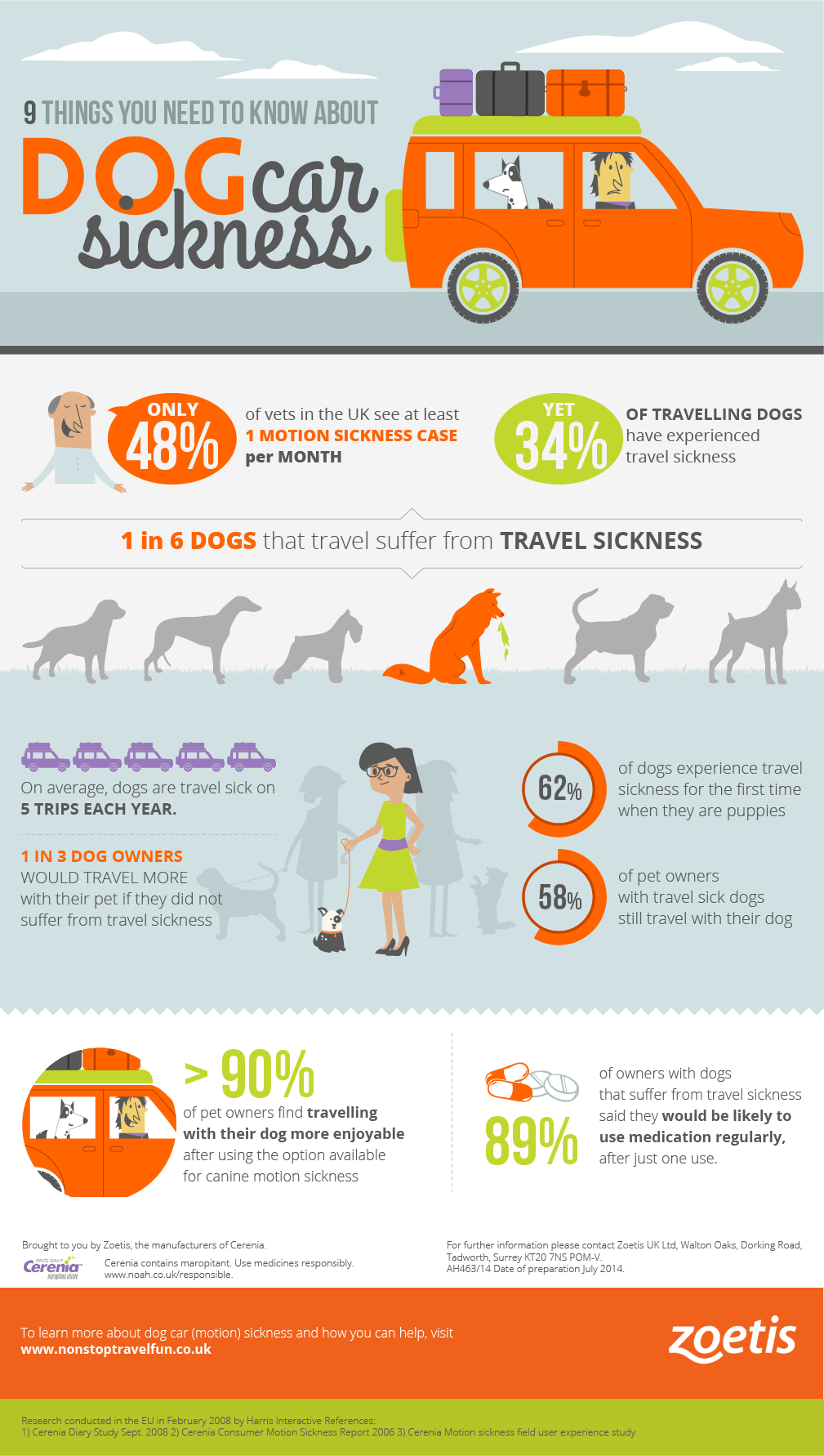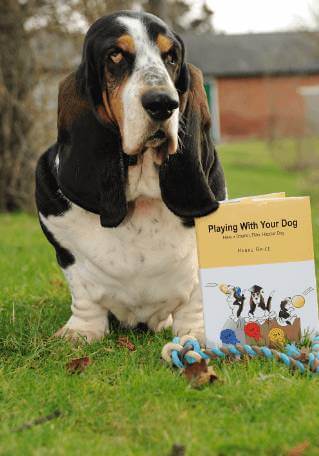Did you know that 1 in 6 dogs in the UK suffer from travel sickness? This summer many of us will be preparing to travel with our pets. But for some owners, travel sickness can be a real problem for their pooch.
Much like us, dogs and cats can experience motion sickness when travelling and it can occur with any form of transport be it boat, car, train or plane. According to Zoetis, the animal health company, 62% of dogs experience travel sickness for the first time when they are puppies but motion sickness can affect dogs of all ages (see the info-graphic below for more fascinating facts).
So what causes it?
Motion sickness can be caused by a number of factors, but primarily it is caused by movement in the inner ear. Dog motion sickness is more commonly seen in puppies and young dogs than in older dogs, just as car sickness affects more children than adults. That is because the ear structures used for balance are not fully developed in puppies – and while many dogs outgrow travel sickness, for some it can continue into old age.
If the first few car rides of your dog’s life left him feeling sick, very soon he will start to connect travel with sickness and may develop ‘car chaos’ – where your dog may resist getting into the vehicle and display signs of stress once inside. Typical signs of stress may include; panting, wide eyes, lip licking, yawning, shaking, whining and barking. Stress can also add to travel sickness, so if your dog has only ever ridden in the car to go to the vet, he may literally worry himself sick on the road.
What are the signs of travel sickness?
While our pet cannot tell us when he is feeling unwell there are a number of visual cues that we can look for prior to physical vomiting. These include:
- Inactivity
- Listlessness
- Uneasiness
- Excessive drooling
What can you do about it?
If you struggle to get your dog into the car then the first step is work on changing his associations with the vehicle, so ultimately he chooses to get in and out of his own free will. Get in touch with a certified trainer to help you with this.
The best way to prevent dog travel sickness is to make the car ride as comfortable as possible for your dog. See our recommendations below.
- Make sure your dog is facing forward while you are travelling. Popping your dog into a specially designed dog seat belt or travel crate will help your dog view passing stimuli from the front facing position rather than from the side which can typically promote nausea. If your dog tends to ride up front with you, do think about his safety as most modern cars have air bags in the front seats which could cause real harm to your pet in the event of an accident.
- Lower your car windows a few inches while the car is moving to help balance the air pressure – this may help reduce your dog’s nausea and discomfort. Like us, dogs can feel queasy when the car is hot or stuffy, so be sure to keep the car cool and well ventilated.
- Limit your dog’s food consumption before you travel.
- Pop some lavender oil under your dog’s collar to help promote calmness.
- Drive carefully and avoid any unnecessary braking or acceleration.
- Make frequent stops on your journey so your dog can go to the toilet, get some fresh air and have a drink.
- For dogs that do not outgrow motion sickness nor respond to counter-conditioning, then speak to your vet about the over the counter and prescription medications available that may decrease your dog’s motion sickness symptoms.

Learn more about our classes

Get Hanne's book, clothing and more
Hanne has a number of publications including her book Playing With Your Dog to help owners work out the games that are best suited for their pet to play throughout his life, from puppyhood to old age, available from Amazon. Check out Hanne's range of contemporary casuals The Collection – for pet lovers made from recyclable, organic materials that are sustainably sourced.

